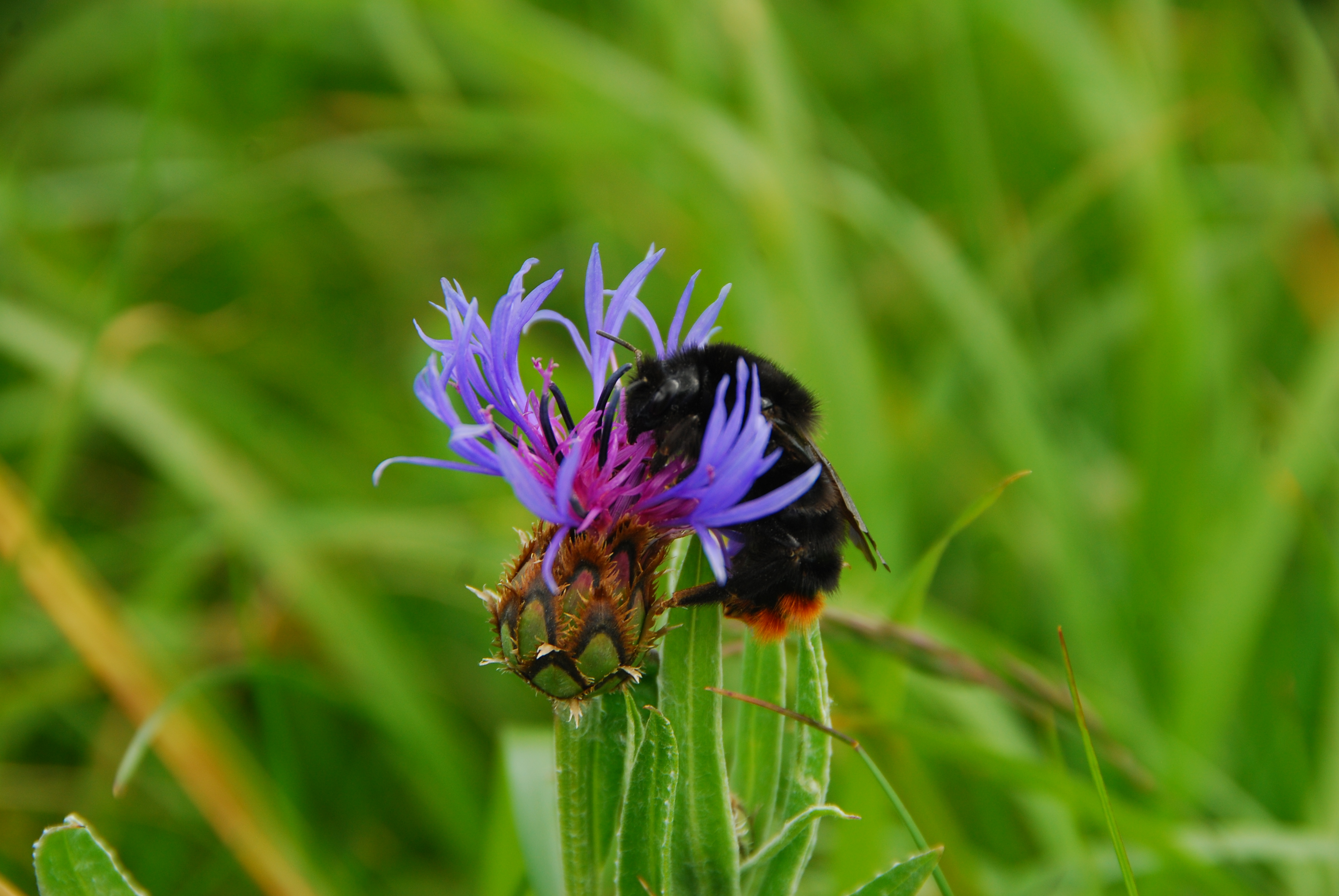What happens when pollinators lose their flowers? UON research suggests answers
Date 14.05.2019

Pollinators such as bees and butterflies are highly dependent on flowers to provide nectar as food; at the same time, those plants are reliant on the pollinators for reproduction. Over the past few decades, declines in both flower and pollinator diversity and abundance have prompted University of Northampton ecologists to wonder about the consequences of flower loss for pollinator communities and for plant pollination.
In a ground breaking new study, a team from institutions in the Czech Republic and the University of Northampton in the UK have published the results of experiments that seek to answer these questions. Led by PhD researcher Dr Paolo Biella, the team performed experiments in both countries that involved temporarily removing thousands of flower heads from grassland plant communities. They assessed how the pollinator assemblage responded to their removal, and how effectively the remaining flowers were pollinated. The team focused on generalist plant species that support the majority of pollinators within a community because these have traditionally been less well studied than highly specialised relationships.
The results are published today in the journal Scientific Reports and provide the first demonstration of the ways in which pollinators flexibly adjust their behaviour when faced with a loss of resources. This flexibility is constrained by the type of flowers they visit, however: pollinators will tend to switch to flowers of a similar shape to the ones that have been lost. From the plant’s perspective, things are less clear: the patterns of pollination for the remaining species were idiosyncratic and not as predictable. Some plants received more pollination during the experiment than before, others less.
One of the study’s authors, Prof. Jeff Ollerton, Professor of Biodiversity at the University of Northampton, said of the research: “For the first time we are seeing the consequences of sudden loss of flowers for both the pollinators and the plants in a habitat. That the pollinators can respond flexibly to this loss is a welcome indication that these insects might be more resilient to sudden changes than we had thought. However, the erratic pollination of the flowers shows that there is a great deal of random chance within these ecological systems that is not easily predictable.
“In the same week that the UN’s Intergovernmental Science-Policy Platform on Biodiversity and Ecosystem Services (IPBES) Global Assessment Report on Biodiversity and Ecosystem Services was published, our study reminds us that there is much that we do not currently understand about the consequences of sudden changes in the natural world.”
One of the team’s recommendations is that pollination-generalist plant species should be given much more attention in conservation assessments than has previously been the case. These plants are at the core of plant-pollinator communities and without them the rarer and more specialised species could not exist.
Details of the study are as follows:
Biella P., Akter A., Ollerton J., Tarrant S., Janeček Š., Jersáková J. & Klecka J. (2019) Experimental loss of generalist plants reveals alterations in plant-pollinator interactions and a constrained flexibility of foraging. More information is available on the Nature website.
Photo: Cuckoo bumblebee feeding on a knapweed flower. Credit Paolo Biella